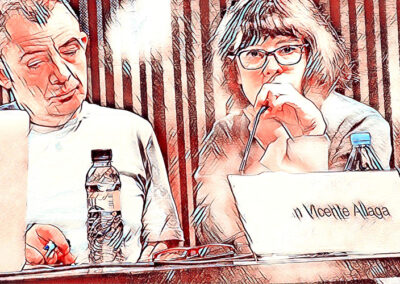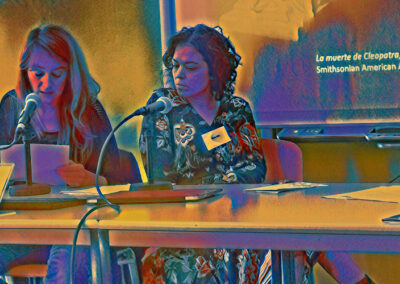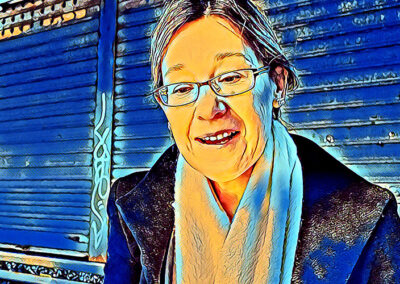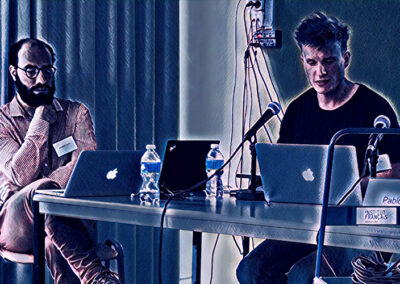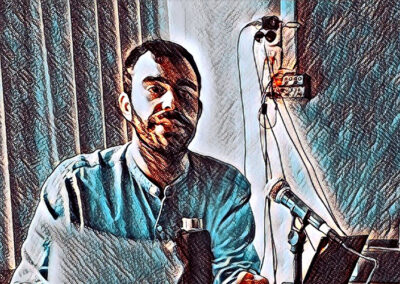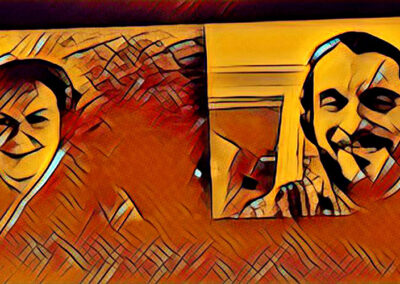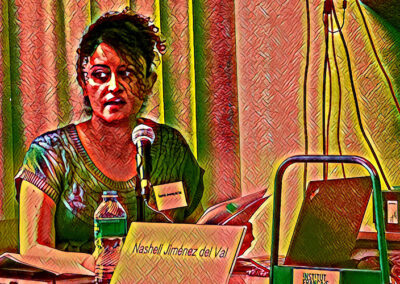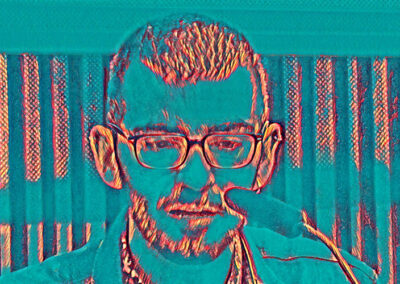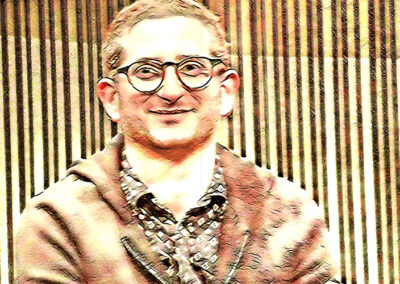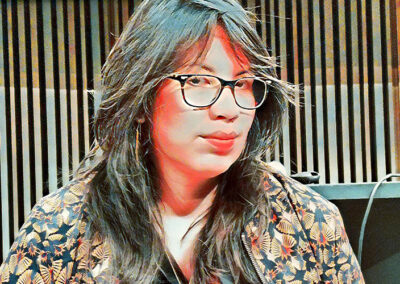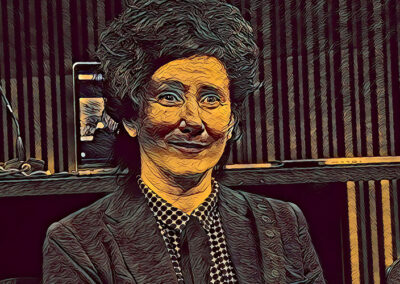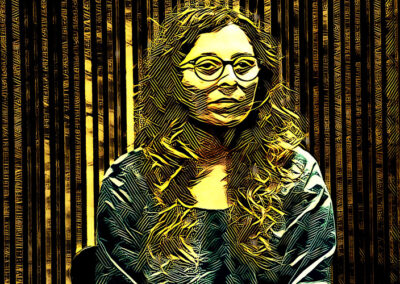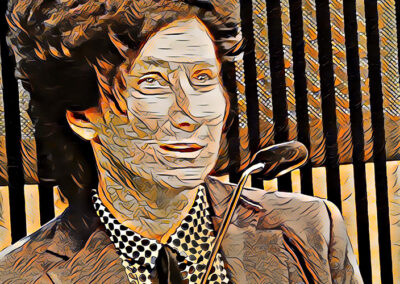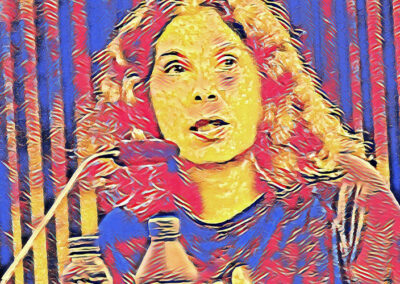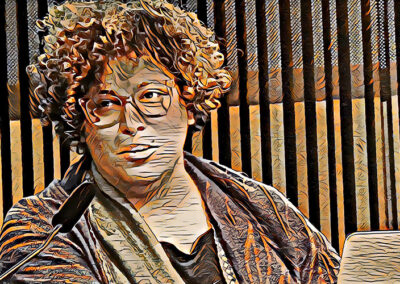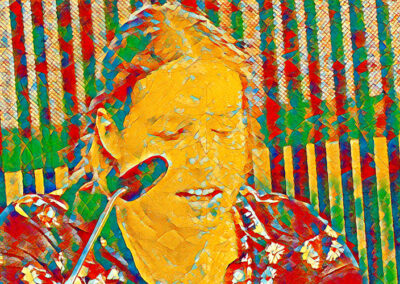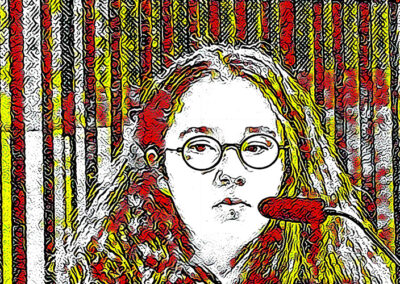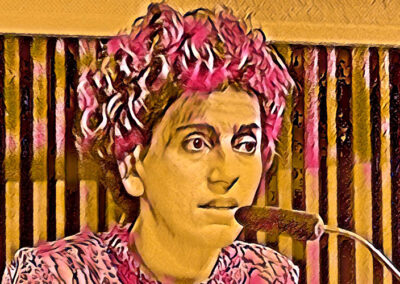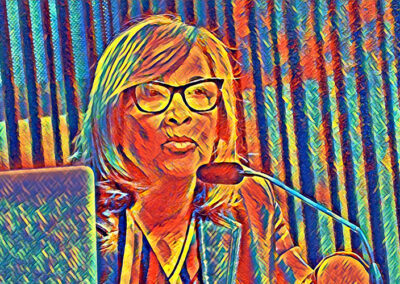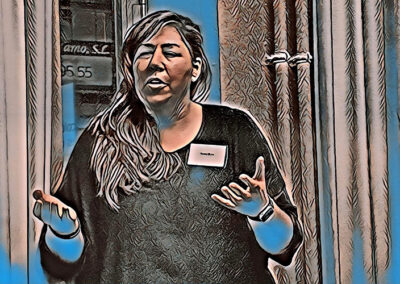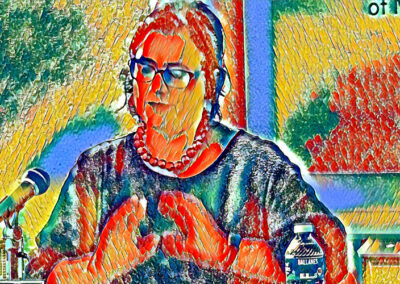Indigenous Epistemologies and Artistic Imagination
International Conference
October 24-25, 2019, Barcelona, Catalonia
Organizing Team
Co-direction: Nasheli Jiménez del Val (AGI)
Coordination: Juan Vicente Aliaga, Christian Alonso, Julia Ramírez Blanco, Pablo Santa Olalla
Organized by: Faculty of Geography and History, Department of Art History, Universitat de Barcelona, MACBA Museu d’Art Contemporani de Barcelona, Conference organized within the framework of the R+D Project “Critical Cartography of Art and Visuality in the Global Age. Part III” (I+D MICINN: HAR2016-75100-P). Spanish Ministry of Economy and Competitiveness. Research Group GRC: Art, Globalization, Interculturality AGI/ART II (2017 SGR 577), Generalitat de Catalunya.
Collaborating Entities: MACBA Museu d’Art Contemporani de Barcelona
Scientific Committee:
Anna Maria Guasch, Universitat de Barcelona
Nasheli Jiménez del Val, Art, Globalization, Interculturality
Belén Saéz de Ibarra, Director of Museo de Arte de la Universidad Nacional de Colombia
Katya García Anton, Director of the Office for Contemporary Art Norway
Kantuta Quirós and Aliocha Imhoff, le peuple qui manque Curatorial Platform
Juan Vicente Aliaga, Universitat Politècnica de València
Julia Ramírez Blanco, Universitat de Barcelona
Christian Alonso, Universitat de Barcelona
Pablo Santa Olalla, Universitat de Barcelona
Program
Keynote Speaker: Nasheli Jiménez del Val (Art, Globalization, Interculturality)
Moderator: Julia Ramírez Blanco (Universitat de Barcelona)
Panel 2: Curating [INSERT PREPOSITIONS HERE] Indigenous Cultures
Keynote Speakers: Katya García Anton (Director of the Office for Contemporary Art Norway, OCA) and Ándre Somby (Writer and Sámi Yoiker)
Moderator: Pablo Santa Olalla (Universitat de Barcelona)
Panel 3: The Political Cosmogony of the Jungle
Keynote Speaker: María Belén Saéz de Ibarra (Director of Museo de Arte de la Universidad Nacional de Colombia)
Moderators: Juan Vicente Aliaga (Universitat Politècnica de València) and Anna Maria Guasch (Universitat de Barcelona)
Panel 4: Encounters among Ethics, Aesthetics and Epistemologies
Keynote Speakers: le peuple qui manque (Kantuta Quirós and Aliocha Imhoff)
Moderator: Christian Alonso (Universitat de Barcelona)
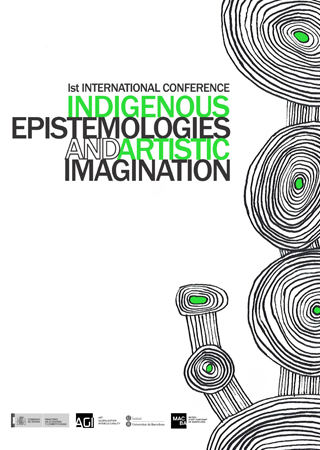 Indigenous situated knowledges are increasingly being recognized as an urgent voice in global debates on natural resources, sustainability, heritage, governance, representation, and social justice. Given the current world situation, in which migration, poverty, discrimination and other social forces are compounded by natural disasters and anthropogenic climate change—dismantling any humanist ideals of peace and prosperity—, indigenous epistemologies have become an alternative for re-thinking what Arjun Appadurai has termed an “emancipatory policy” that could address the asymmetries in the distribution of resources, capital, and power in what is now a clearly destabilizing global landscape. How may a position of marginality become a space of power in our contemporary world, a possibility that seems even more relevant today as we contemplate the broad resurgence of indigenous societies in multiple regions and forums? How do indigenous claims to self-representation and cultural production challenge current Western-hegemonic ways of belonging to and looking at the world? Seen through the lens of an as-yet unfinished process of decolonization in which “the indigenous” is now being activated and understood through different social, political and aesthetic platforms, contemporary indigenous artistic agents and activists share complex and often conflicting agendas that signal potential points of tension and resistance in the current global scenario.
Indigenous situated knowledges are increasingly being recognized as an urgent voice in global debates on natural resources, sustainability, heritage, governance, representation, and social justice. Given the current world situation, in which migration, poverty, discrimination and other social forces are compounded by natural disasters and anthropogenic climate change—dismantling any humanist ideals of peace and prosperity—, indigenous epistemologies have become an alternative for re-thinking what Arjun Appadurai has termed an “emancipatory policy” that could address the asymmetries in the distribution of resources, capital, and power in what is now a clearly destabilizing global landscape. How may a position of marginality become a space of power in our contemporary world, a possibility that seems even more relevant today as we contemplate the broad resurgence of indigenous societies in multiple regions and forums? How do indigenous claims to self-representation and cultural production challenge current Western-hegemonic ways of belonging to and looking at the world? Seen through the lens of an as-yet unfinished process of decolonization in which “the indigenous” is now being activated and understood through different social, political and aesthetic platforms, contemporary indigenous artistic agents and activists share complex and often conflicting agendas that signal potential points of tension and resistance in the current global scenario.
The First International Conference “Indigenous Epistemologies and Artistic Imagination” aims to address the recent inclusion of “indigenous thought” in the global art world by seeking to create links between non-Western knowledges, indigenous epistemologies and the artistic imagination, deploying an approach that Rosi Braidotti terms “non-Western indigenous humanism” or “indigenous knowledge systems”. Within the framework of a critical humanities that addresses our current posthuman landscape, Braidotti poses a series of questions that echo our aim to link postcolonial theories, environmental humanities and indigenous epistemologies: What do we make of the fact that so few institutional patterns have emerged around feminist / queer / migrant / poor / de-colonial / diasporic humanities? What are the actual implications of these deterritorializations for both the posthuman knowing subject and her disciplinary practice? How can we negotiate the paradoxical confluence that tenses a certain fagocitation of “other” epistemologies by (Western) academia and the will—or need—of some communities to gain ground in the social sphere in order to make their demands visible? These are some of the central questions that we aim to discuss through a trans-disciplinary stance in what we might call the rhizomatic field of contemporary knowledge production.

Panel 1.
Indigenism(s) / Indigeneity:
A Conceptual Genealogy
of “The Indigenous”
Keynote Speaker: Nasheli Jiménez del Val (Art, Globalization, Interculturality)
Moderator: Julia Ramírez Blanco (Universitat de Barcelona)
This panel aims to critically consider the concepts of “the indige-nous”, indigenism, and indigeneity by providing a genealogy of the terms in different geographical and historical contexts. What function do those terms continue to serve in a cultural push for decolonization? What sites of situated agency do identifiers such as “aboriginal peoples”, “First Nations”, and “pueblos originarios” mark? Taking into account both hegemonic discourses of indigenism and practices of indigenous strategic resistances, this panel seeks to discuss the deployment of these concepts as epistemological tools for cultural (self)representation.

Panel 2.
Curating
[INSERT PREPOSITIONS HERE]
Indigenous Cultures
Keynote Speaker: Katya García Anton (Director of the Office for Contemporary Art Norway, OCA) and Ándre Somby (Writer and Sámi Yoiker)
Moderator: Pablo Santa Olalla (Universitat de Barcelona)
Western epistemology is attached to subject-object relations which are linear, usually regulated by a single preposition (‘of’, ‘with’, ‘in’, ‘on’, ‘at’, ‘from’, ‘by’, ‘after’, and so on). As prepositions express the relations between elements, we can imagine a prepositional thinking that switches every time the relational convention between the elements that it manages changes. Do non-Western epistemologies compel towards a prepositional displacement of thought? How does this switching affect the curatorial? Instead of theoretically wondering (once again) if it is possible to decolonize Western institutions such as the museum or the art system, this panel seeks to present practical cases that interweave curatorship and indigenous cosmologies. From the politics of hearing to taking political action; from “walking in the other’s shoes” to taking advantage of exoticization; what actions, advocacies, cares, catalysts, dispositifs, displacements, processes, and strategies do the curatorial employ when engaging with so-called “non-Western” cultures? What are the hazards?

Panel 3.
The Political Cosmogony
of the Jungle
Keynote Speaker: María Belén Saéz de Ibarra (Director of Museo de Arte de la Universidad Nacional de Colombia)
Moderator: Juan Vicente Aliaga (Universitat Politècnica de València) and Anna Maria Guasch (Universitat de Barcelona)
This panel will address, through the scope of the museum-as-institution and contemporary curatorial practices, how the thought of the modern European enlightenment has been configured in opposition to indigenous atavistic thought understood as the unconscious of an ancient primitive race that holds a secret: the living. A secret that science cannot unveil. Only culture and imagination are capable of approaching this issue of universal dimensions.

Panel 4.
Encounters among Ethics,
Aesthetics and Epistemologies
Keynote Speaker: le peuple qui manque (Kantuta Quirós and Aliocha Imhoff)
Moderator: Christian Alonso (Universitat de Barcelona)
How might artistic imagination and indigenous epistemologies engage in a generative collaboration to rethink relationality towards alterity, both human and non-human, allowing the opening up of our subjective configurations in light of the challenges brought on by the ecological, social and political crises of our times? Indigenous groups embody different conceptual and sensible universes that significantly challenge Western stratified, dualistic systems of reference, providing myriad opportunities to rearrange mutual coexistence. In what manner might these “other” universes become the seedling for a reconsideration of our positionality, our social relations, and our value systems on the basis of a new sense of finitude and accountability? By what means could this endeavour benefit from an artistic practice defined by a permanent recreation of subjectivity from which new mental, social and environmental realities can be forged?
Venues
UB, Universitat de Barcelona / Aula Magna
Montalegre 6, 4th Floor, 08001 Barcelona, Catalonia
www.ub.edu
MACBA Museu d’Art Contemporani de Barcelona
Plaça dels Àngels 1, 08001 Barcelona, Catalonia
www.macba.cat

